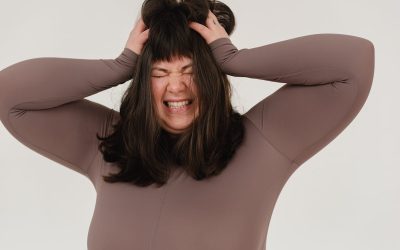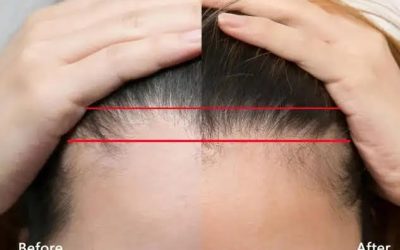There is no shortage of products in the market that supposedly promote hair growth, from the usual hair loss shampoos to the highly advanced laser therapy. There is also a selection of vitamin supplements for hair regrowth – biotin, Vitamin D and Vitamin E, to name but a few.
Just like using hair loss shampoos, taking vitamins to boost hair health or promote hair growth is a common practice nowadays. Its use is prevalent not just amongst hair loss sufferers but also people who want to keep their tresses healthy.
But will taking vitamins for hair growth really help?
Vitamins for Hair Growth: Facts You Should Know
Your hair is no different from the other parts of your body. It needs a variety of nutrients for it to grow and stay healthy.
Studies show that nutritional deficiencies can lead to hair loss. They can also result in thin and brittle hair.
For example, a 2019 review found a link between alopecia areata (AA), an autoimmune disorder, and vitamin D deficiency. To be more specific, people with alopecia areata were noted to have low levels of vitamin D.
Suffice to say, optimal nutrient intake is integral in keeping hair healthy and promoting hair growth.
Admittedly, meeting the recommended dietary allowances for certain vitamins or nutrients can be challenging. In fact, a lot of people suffer from nutritional deficiencies without them knowing about it.
Aside from eating a balanced diet, one way to bring your nutrient levels back to normal is to take vitamin supplements.
What Vitamins Are Essential for Hair Growth?
Vitamin A
This type of vitamin is needed by the cells in the body, including the hair, to grow. Your tresses also need vitamin A to stay moisturised.
Some studies found that vitamin A deficiency can result in hair loss as well as health problems like respiratory infections.
B Complex Vitamins
Some types of vitamin B have been identified as essential for hair growth. One of the most talked about is biotin or vitamin B7.
Biotin supplements are usually part of hair loss treatments. Based on studies, taking them is most beneficial for those who are deficient.
Another B-vitamin that plays a role in hair health is cobalamin or vitamin B12. However, while it has been established that B12 deficiency leads to hair loss, more studies are needed to determine whether taking a B12 supplement can help those who do not have a deficiency.
Vitamin C
This type of vitamin is needed in the production of collagen, an important component of the hair. It also helps protect the hair from premature ageing.
Furthermore, Vitamin C is needed by the body to efficiently absorb iron. In case you didn’t know, iron deficiency is one of the leading causes of hair loss.
Vitamin D
According to research, vitamin D plays a crucial role in the production of hair, specifically the creation of new follicles.
Also, as mentioned earlier, vitamin D deficiency has been associated with alopecia areata. Studies further show that the symptoms of AA tend to be more severe in people with low levels of vitamin D.
Vitamin E
Just like vitamin D, vitamin E has been linked to alopecia areata. In one study, those with AA had lower concentrations of this vitamin in their blood as compared to those without this condition.
Meanwhile, a separate study found that hair loss sufferers who take vitamin E supplements experienced around 34.5% increase in hair growth.
Will Taking Vitamins for Hair Growth Work for You?
Well, it largely depends on the reason behind your hair loss. If a vitamin deficiency is causing your alopecia, then taking supplements may help resolve the problem.
So, before you start taking this so-called hair growth vitamins, it is best to see a trichologist or dermatologist and get a proper diagnosis. If a vitamin deficiency is indeed causing hair loss, then the specialist is going to prescribed supplements.
It should be noted though that hair loss treatments usually involve the use of several products. Depending on your condition, the specialist may ask you to take clinically-proven medicines for hair loss along with the vitamin supplement.
It is also not unusual for hair and scalp specialists to recommend the use of supplements even if the hair loss is not due to a vitamin deficiency. For example, in traction alopecia cases, supplements may be recommended to strengthen the hair.
In summary, taking vitamin supplements may help you grow your hair back. But please don’t take them without consulting a qualified professional like a trichologist or dermatologist first.
Remember, while these vitamins may promote hair growth, they can also trigger hair loss if you take too much of them. Hence, to avoid further losing your hair or experiencing vitamin toxicity, it is always best to consult a specialist to determine which ones to take and for how long.
Are you looking for vitamins for hair growth? Talk to our experienced trichologist to determine which one is right for you. Call us now on +353 (0)1 6793618 to schedule an appointment!



